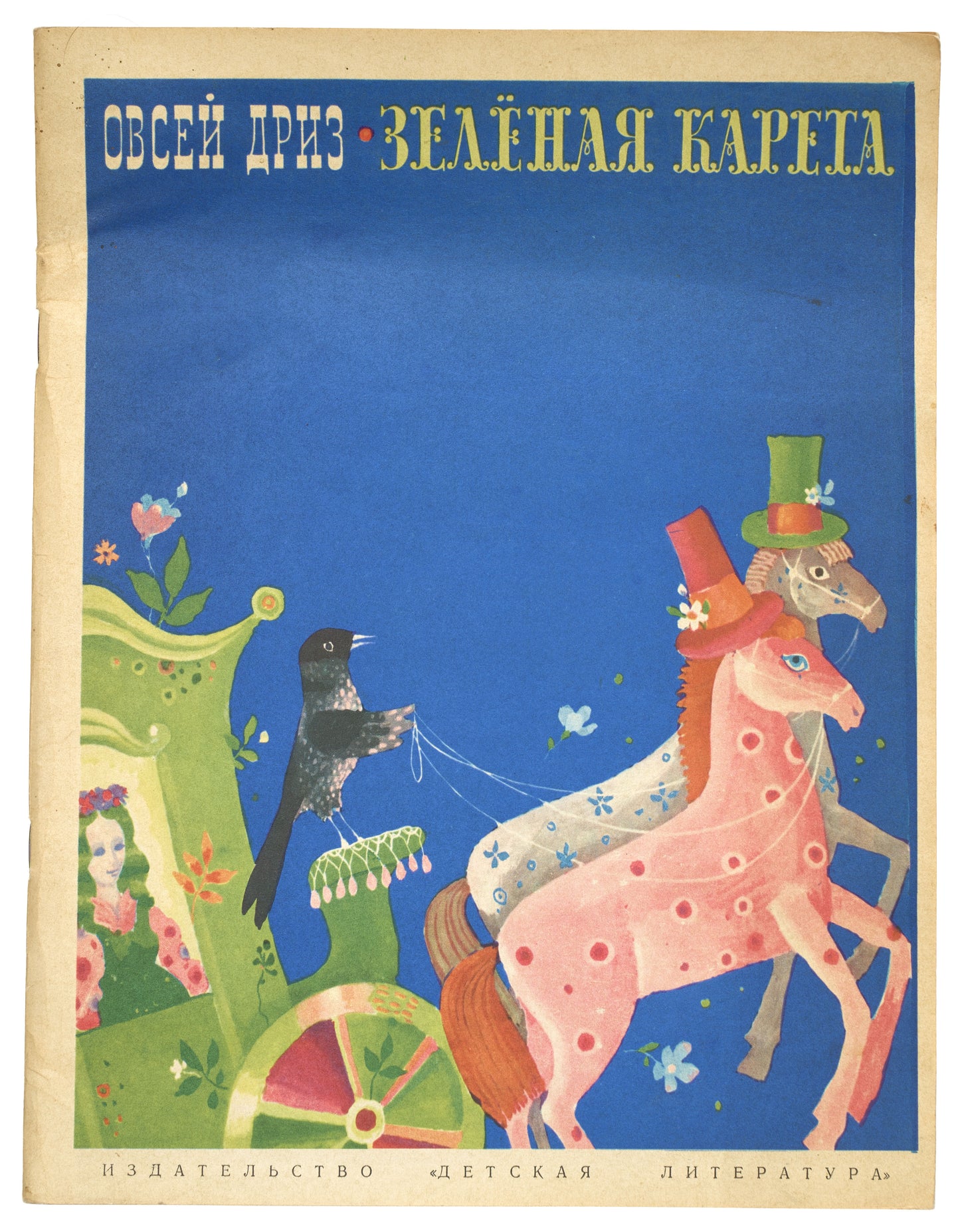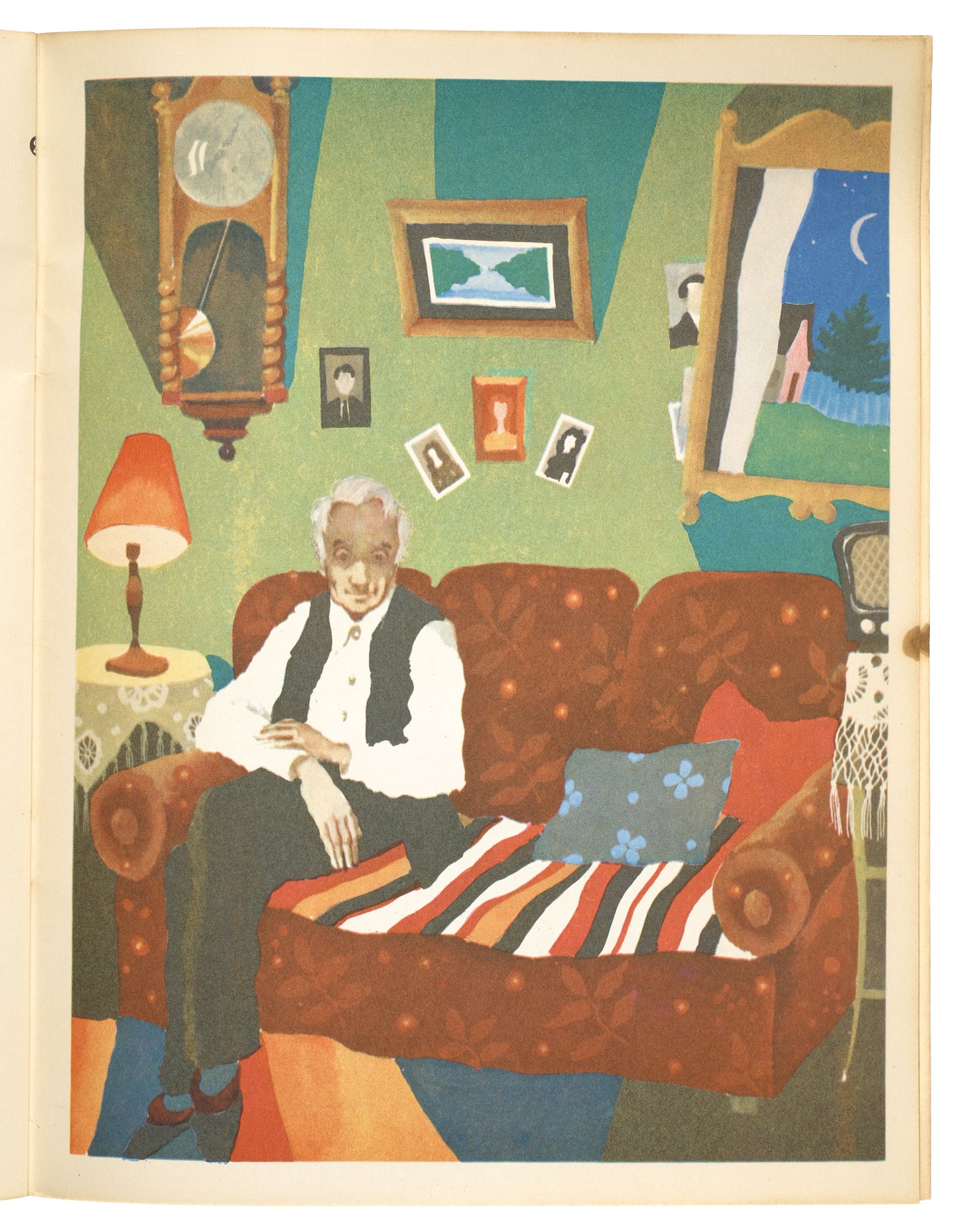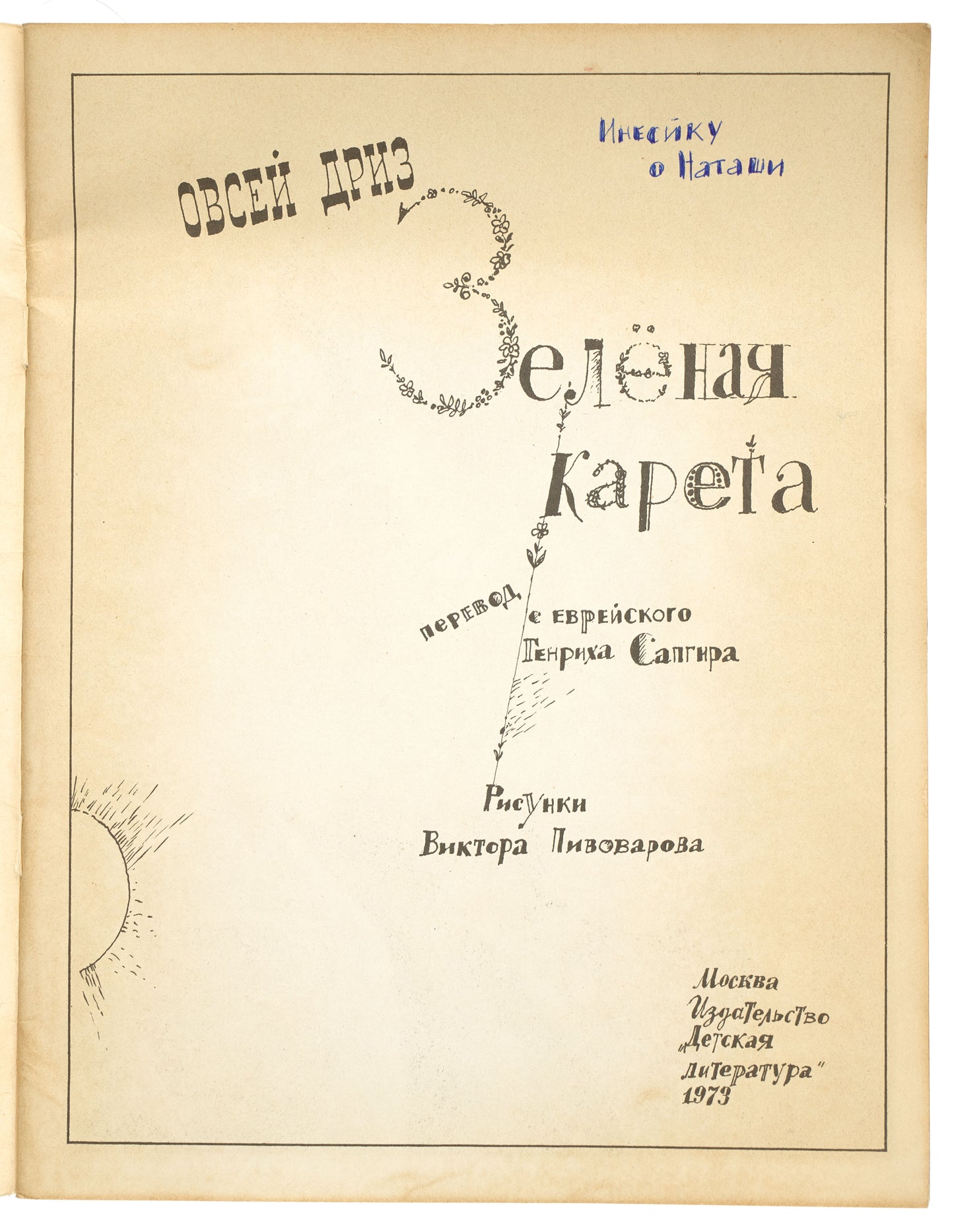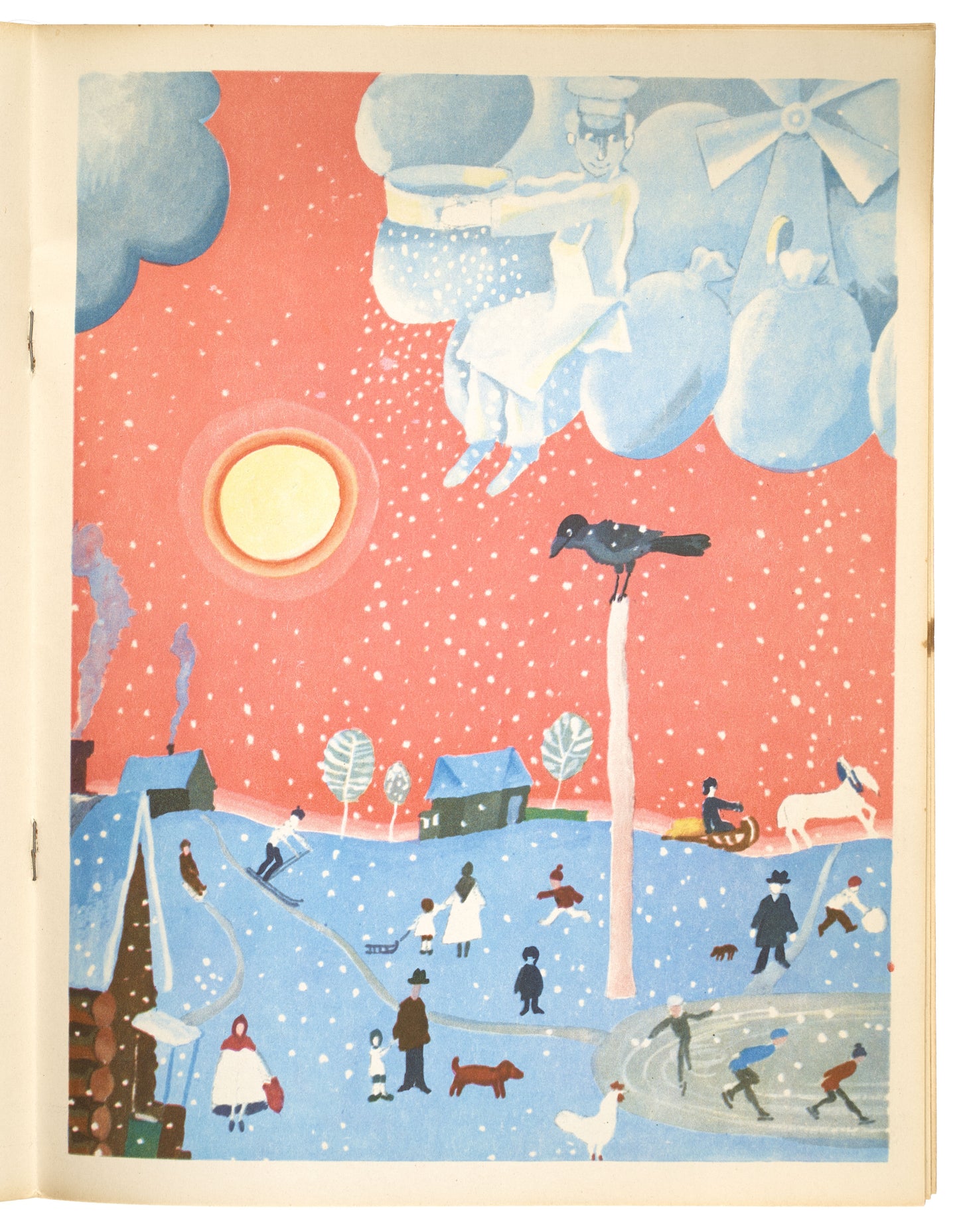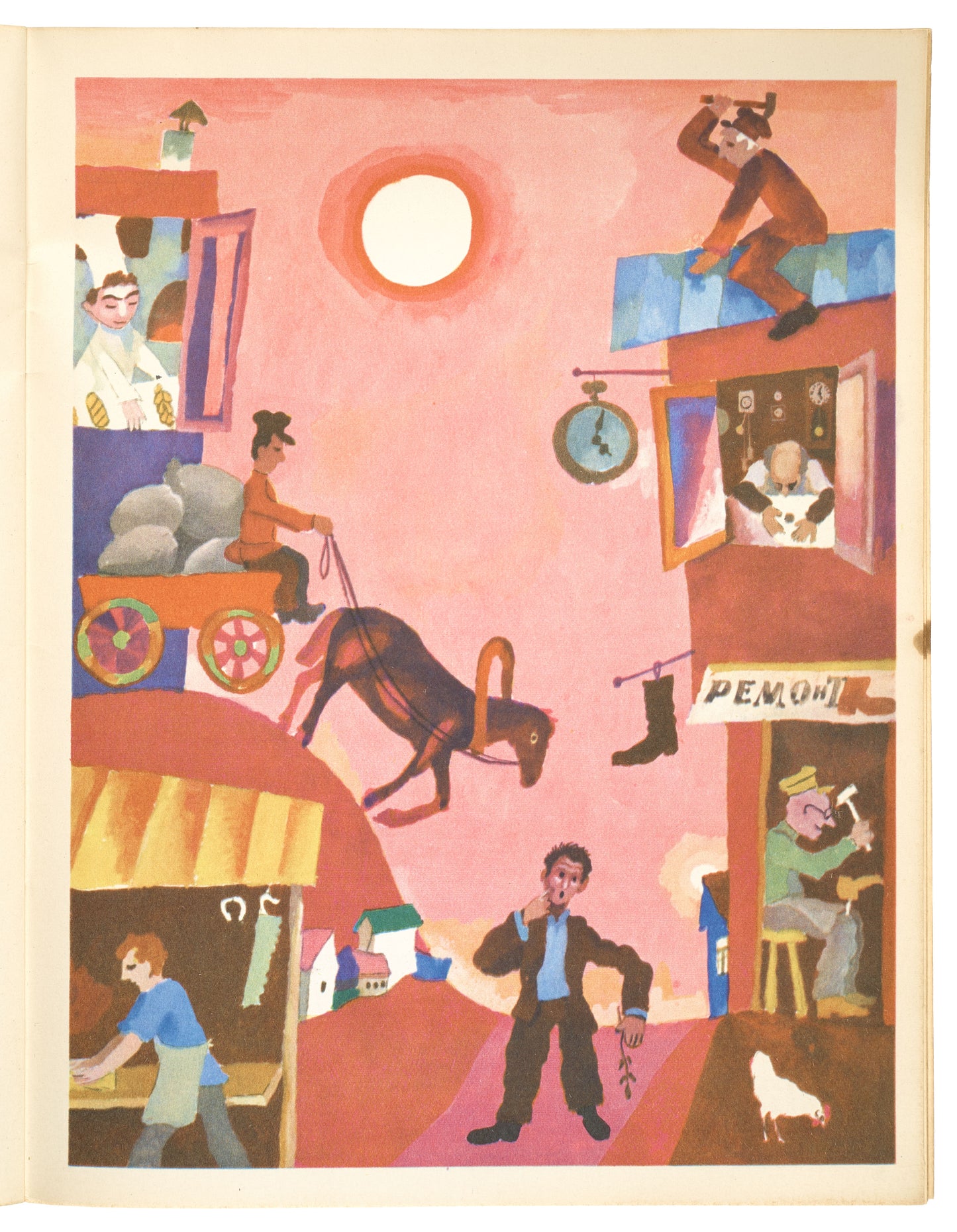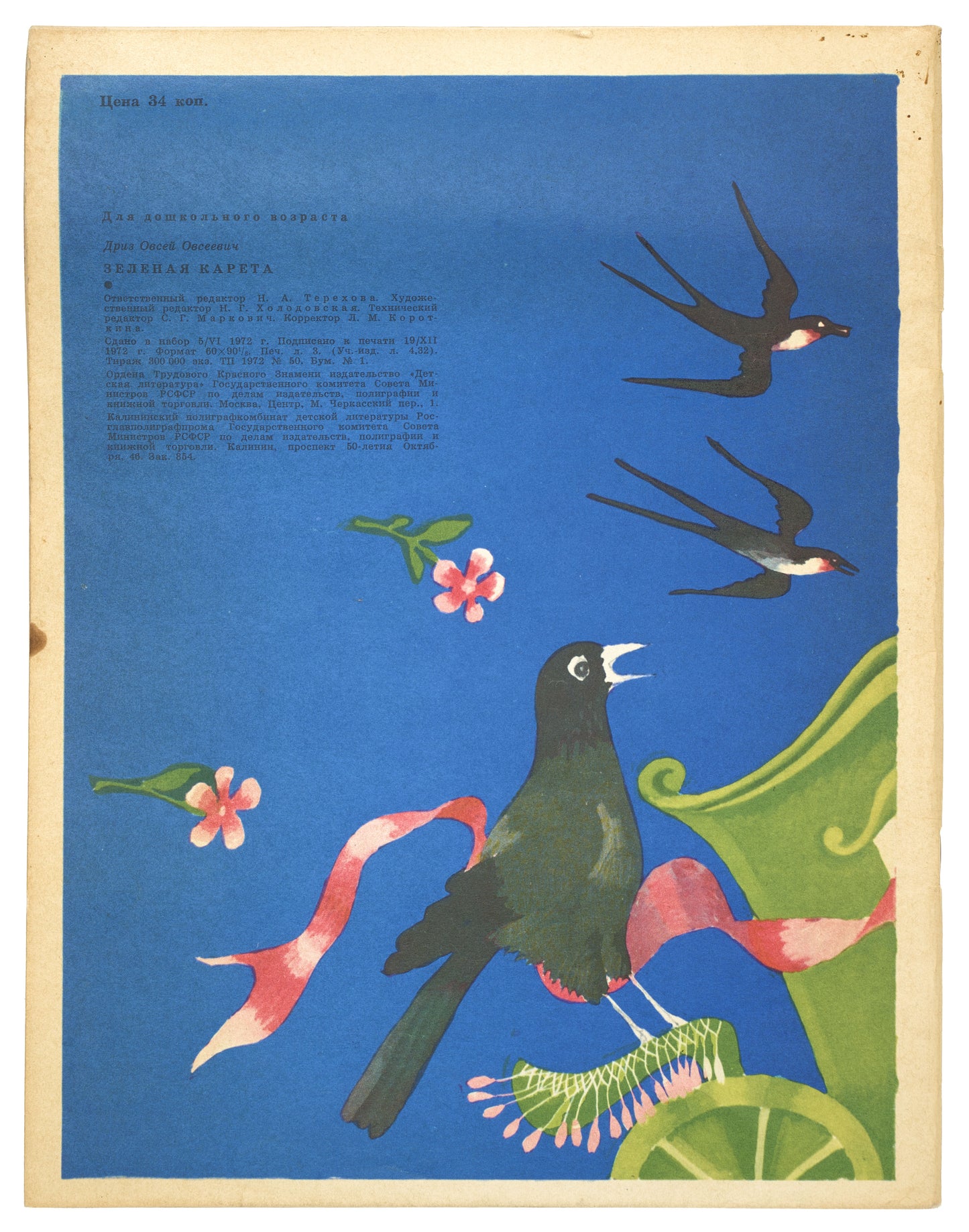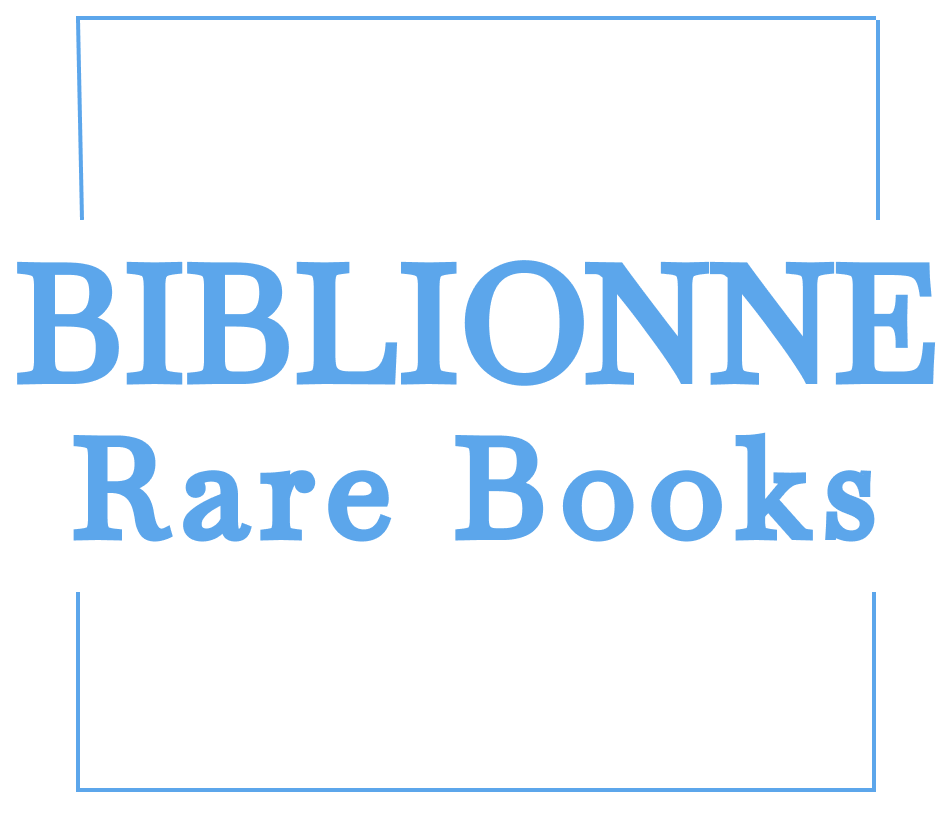Driz, Ovsei
The Green Carriage. Inscribed by the art editor.
The Green Carriage. Inscribed by the art editor.
Couldn't load pickup availability
Driz, Ovsei [Shike] [The Green Carriage]. Zelenaya Kareta.
Translated from Yiddish by Genrikh Sapgir.
Illustrations by Viktor Pivovarov.
Moskva, Izdatelstvo "Detskaya Literatura", 1973.
8vo, 23, [1] pp., ill.
In original illustrated wrappers. Inscribed by the art editor N. Kholodovskaya: 'Inesiku o[t] / Natashi' [To Inna from Natasha.].
Near very good condition, lightly rubbed, very faint stains to rear wrapper.
First and only edition.
Genrikh Sapgir (1928-1999), one of the leaders of the Soviet Nonconformist Art movement and a member of the underground 'Lianozovo Group', masterfully translated the verses of Soviet Yiddish poet Shike (Ovsei) Driz (1908-1971).
The book was illustrated by Viktor Pivovarov (born 1937), an artist, writer, and art theorist who is considered one of the 'founding fathers' of the Moscow Conceptualist artistic movement. Pivovarov received his training under Pavel Korin at the Moscow Polygraphic Institute. Like many other avant-garde artists since the 1930s, Pivovarov also created children's books in the 1960s and 1970s to steer clear of repressions. He worked at the Detskaya Literatura publishing house, where he met representatives of the 'Lianozovo Group', including Igor Kholin and Genrikh Sapgir, and through them, Ovsei Driz and Ilya Kabakov. Interestingly, this book contains a portrait of Ovsei Driz himself (p. 21). Pivovarov was also a part of the Sretensky Boulevard Group, a group of avant-garde artists with neighbouring studios in Moscow that included Ilya Kabakov and Erik Bulatov. In 1982, Pivovarov moved to Prague.
The book was from the children's collection of Inna Shmeleva (1929-2020), an artist who studied under Ely Bielutin, the founder of The New Reality artistic academy. In 1962, Shmeleva participated in the 30th anniversary of the Moscow Union of Artists at the Central Exhibition Hall (Manège), which was heavily criticized by Nikita Khrushchev. This event marked the end of the period known as the Khrushchev Thaw.
OCLC locates two copies of this edition: in the New York Public Library and the Library of Congress.
